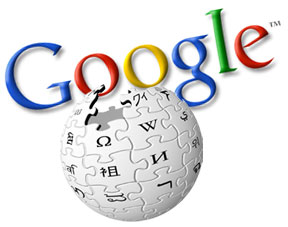What year did William the Conqueror lead the Normans in a victory at the Battle of Hastings? Google it! How many touchdown passes did Tom Brady throw this weekend? Google it! When was the last time there was a super-majority in the United States’ federal government? Google it!
Society has evolved to the point that one you think of a question, you have the ability to get an answer. Nearly ten years ago, this type of need for information was not as clear. When someone would think of something, it was “Maybe I’ll Google it when I get home, provided I remember it.” With today’s smartphones, answers to the questions above and any others can be obtained in just seconds.
Google, along with other search engines, has also affected researching. Some argue for the good, some for the worse. In a study conducted by the Pew Research Center titled “How Teens do Research in the Digital World”, it was determined that while 77% of teachers believe that the internet has had a “positive impact”, at the same time, 64% believe that today’s digital technologies “do more to distract students than to help them academically”.
I believe in the former; the ability to have information in seconds as opposed to waiting weeks to acquire it far outweighs any negative impact the internet can have on learning. My favorite high school teacher, a recent MIT graduate and one of the smartest people I know, stated that his degree should be from the “University of Wikipedia”. This is testament to the fact that Wikipedia is a wonderful source of information and should not be discredited by educators as garbage. In a study in 2005 by the journal Nature, it was discovered that Wikipedia was as accurate as world renowned Encyclopedia Brittanica. This study conducted over 10 years ago points to the fact that Wikipedia is extremely accurate and only continues to become more accurate. Sure, Wikipedia can be vandalized more easily than any other encyclopedia, but the chances of this are rapidly decreasing with dedicated servers and spam catching software utilized by Wikipedia to clean up their articles.
Why must educators continue to bastardize Wikipedia and Google as corrupt and unreliable sources when they are proven to be as reliable or in some cases more reliable than scholarly resources? What is your experience in using these sites? Comment below.

I believe that you make good points about the validity of Wikipedia and the information that can be found using Google. However, I think that we need to teach younger generations to use these tools in smart ways. I think back to the days of Cha Cha when you could simply text 242-242 and receive answers to your questions just like we now do with Google. This information was great for a quick discussion but you had no source to go off of in order to cite this information. I think that we need to learn to take this information as a reliable way to gather research but we must be careful to only use scholarly sources that are found online when they are appropriate.
LikeLike
One possibility to why educators still feel like they should degrade Wikipedia is that they feel like it can still be easily vandalized. Plus, other sites sponsored by universities or even the government typically are considered more reliable since they have multiple levels of screening. I have always been taught to use information backed by notable sources and to never use Wikipedia even for ideas.
LikeLike
I agree with you about Wikipedia! While I don’t think it should be cited as a main source in research, I still think it can be a very helpful and reliable source for information. I think that digital research has made information more accessible, but maybe makes the information we have a little more diluted. Either way, Wikipedia and Google can be viewed and utilized effectively.
LikeLike